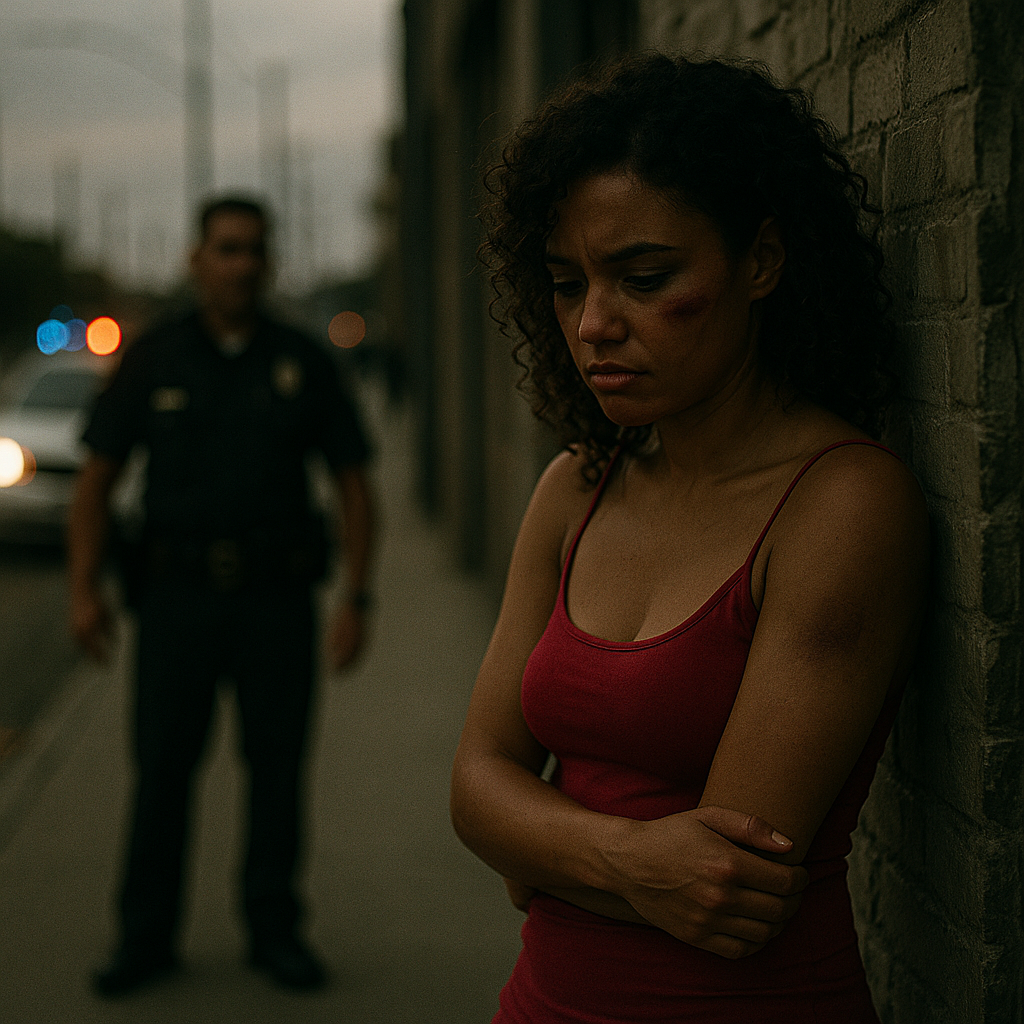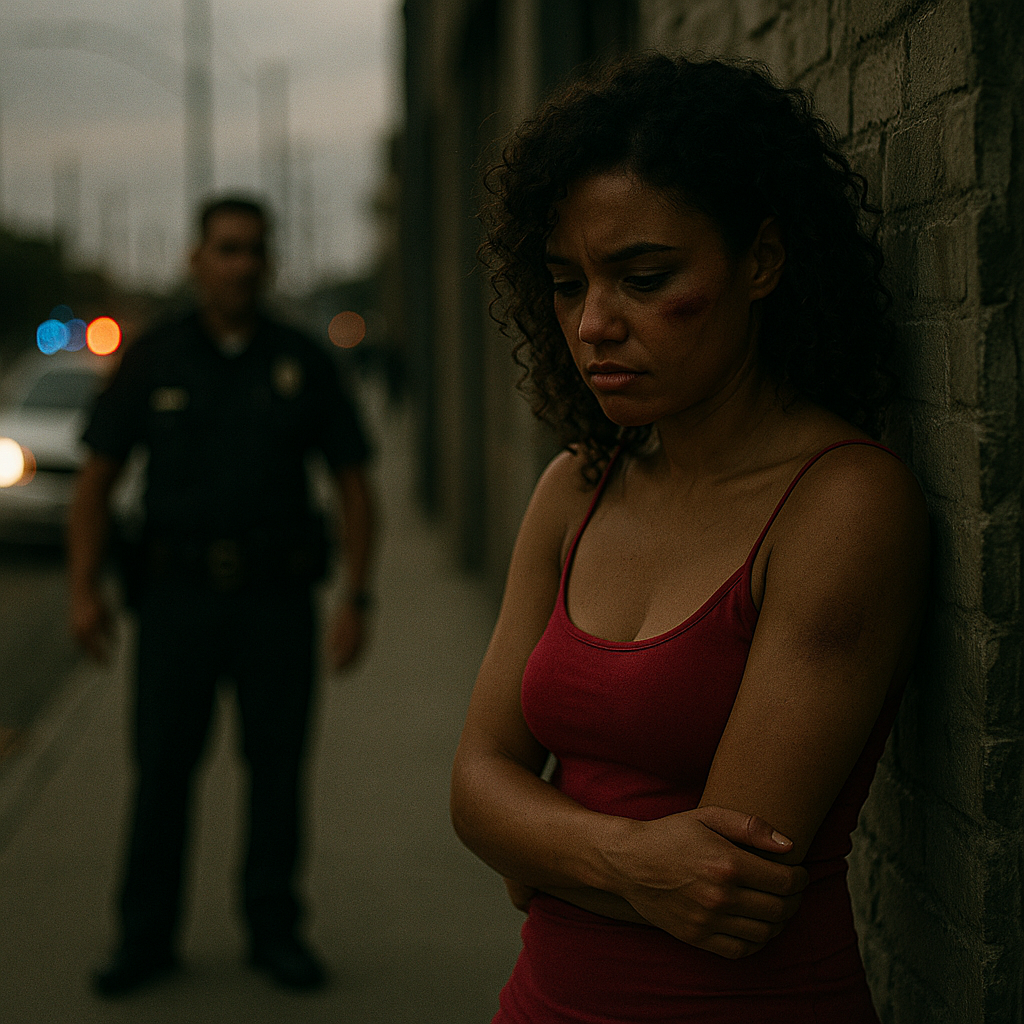Featured Story
Behind Closed Doors: Violence and Safety Concerns in the Sex Industry
Los Angeles, 2 AM. On Figueroa Street, girls stand in the shadows—some barely teenagers, branded by their traffickers.
Around the world, sex workers face brutal violence with little protection. As abuse rises, one question demands answers: Are our laws keeping them safe—or making things worse?
In cities around the world, sex workers continue to operate under a cloud of risk—not just from the criminal justice system, but from the ever-present threat of violence. While the sex industry is often the subject of moral and legal debate, its real, human toll is rarely addressed with the urgency it deserves.
Violence against sex workers is not just a distant or underground issue—it is a widespread public safety concern. According to Amnesty International and various harm reduction groups, sex workers face disproportionately high rates of physical assault, sexual violence, and even homicide. Much of this violence goes unreported, driven by fear of arrest, stigma, or disbelief from law enforcement.
"The first time I was assaulted by a client, I didn’t go to the police," says Maya*, a 29-year-old independent escort. "I knew they’d see me as the problem, not him."
Her experience is far from unique. Many sex workers report being denied police protection, treated as criminals, or pressured to give up their work entirely in exchange for support. The result? A dangerous silence that allows predators to act with impunity.

Experts point to the criminalization of sex work as a major contributor to these unsafe conditions. When sex workers are forced to operate in the shadows, they have fewer options to screen clients, establish safety protocols, or seek help when something goes wrong.
"The law isn't just failing to protect sex workers—in many cases, it's actively putting them at risk," says Dr. Lena Wallace, a sociologist specializing in public health and sex work. "Criminalization pushes people into isolated spaces where violence thrives and accountability disappears."
Recent events have highlighted the urgency of this issue. In Los Angeles, a report by The Times unveiled the grim reality of underage sex trafficking along Figueroa Street, deemed the nation’s most notorious prostitution corridor. Young girls, some as young as 12, are coerced nightly into prostitution by pimps, often marked by tattoos and expected to reach nightly monetary quotas. Sgt. Al Navarro of the LAPD and his team run monthly undercover operations to identify and rescue these minors, whose numbers have surged alarmingly—123 children were rescued in 2024 alone. Many victims come from abusive or unstable backgrounds, including foster care, and are recruited via social media on platforms such as Instagram and TikTok. The 2023 decriminalization of loitering for sex has exacerbated the problem by emboldening pimps and reducing police ability to verify the ages of suspected minors. Despite significant challenges and repeated setbacks—many rescued girls resist collaboration and return to their traffickers—Navarro and local charities continue their missions, striving to combat the exploitation feeding LA's underground sex trade.
Some countries and cities are trying a different approach. Decriminalization models, such as those in New Zealand and parts of Australia, have shown promise. Advocates say these models give sex workers the legal rights and protections other workers take for granted—including the ability to report abuse without fear.
But while policy debates continue, many organizations are working on the ground to fill the gap. Outreach programs provide sex workers with panic alarms, health services, and legal support. Still, advocates stress that these efforts are stopgaps, not solutions.
"Safety shouldn’t be a privilege reserved for the few who can work online or afford security," says Toni Reeves, director of a nonprofit supporting sex workers in urban areas. "It should be a basic right."
As the conversation around sex work evolves, so too must our understanding of the real risks faced by those within it. Stripping away stigma and listening to the voices of sex workers themselves is the first step toward building a safer, more just society—for everyone.
Names changed for privacy.







